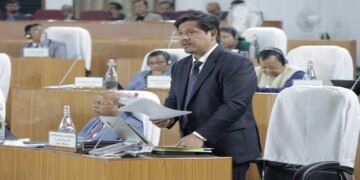Mizoram Chief Minister’s recent statement about forming a separate Christian country, comprising Christian-dominated areas of the Northeast and neighboring countries, has ignited a firestorm of controversy. This bold assertion raises fundamental questions about secularism, identity politics, and the intricate relationships between religion and governance.
In the Christian-majority states of Mizoram, Meghalaya, and Nagaland, the Church exercises significant influence over civil society and government. The Church’s dominance has led to tensions with the Hindu nationalist Bharatiya Janata Party (BJP), which has been expanding its presence in the region. The BJP’s electoral successes have been met with resistance from the Church, which views the party’s Hindu nationalist agenda as a threat to Christian values and identity.
The concept of a separate Christian nation is not new, but its feasibility and desirability are hotly contested. Proponents argue that such a nation would provide a safe haven for Christians facing persecution and protect their cultural and religious heritage. Critics, however, see this as a divisive and unrealistic goal that would exacerbate existing tensions and undermine India’s secular fabric.
In the Northeast, identity politics is a complex and sensitive issue. The region is home to diverse ethnic and tribal groups, each with their own distinct culture and history. The Church’s influence has contributed to the politicization of Christian identity, sometimes at the expense of other minority groups. For instance, in Mizoram, the Brus, Hmars, and Chakmas have faced systematic persecution, highlighting the challenges of building a cohesive Christian nation.
The idea of a separate Christian nation raises critical questions about secularism and governance. Would such a nation adhere to democratic principles and protect minority rights? Or would it succumb to theocratic tendencies, undermining India’s secular framework?
In conclusion, Mizoram CM’s statement has sparked a necessary debate about the intersections of religion, identity, and governance. While the idea of a separate Christian nation may resonate with some, its implications require careful consideration. As India navigates the complexities of diversity and secularism, it is essential to prioritize inclusive and democratic governance that protects the rights of all citizens, regardless of their faith or identity.









































